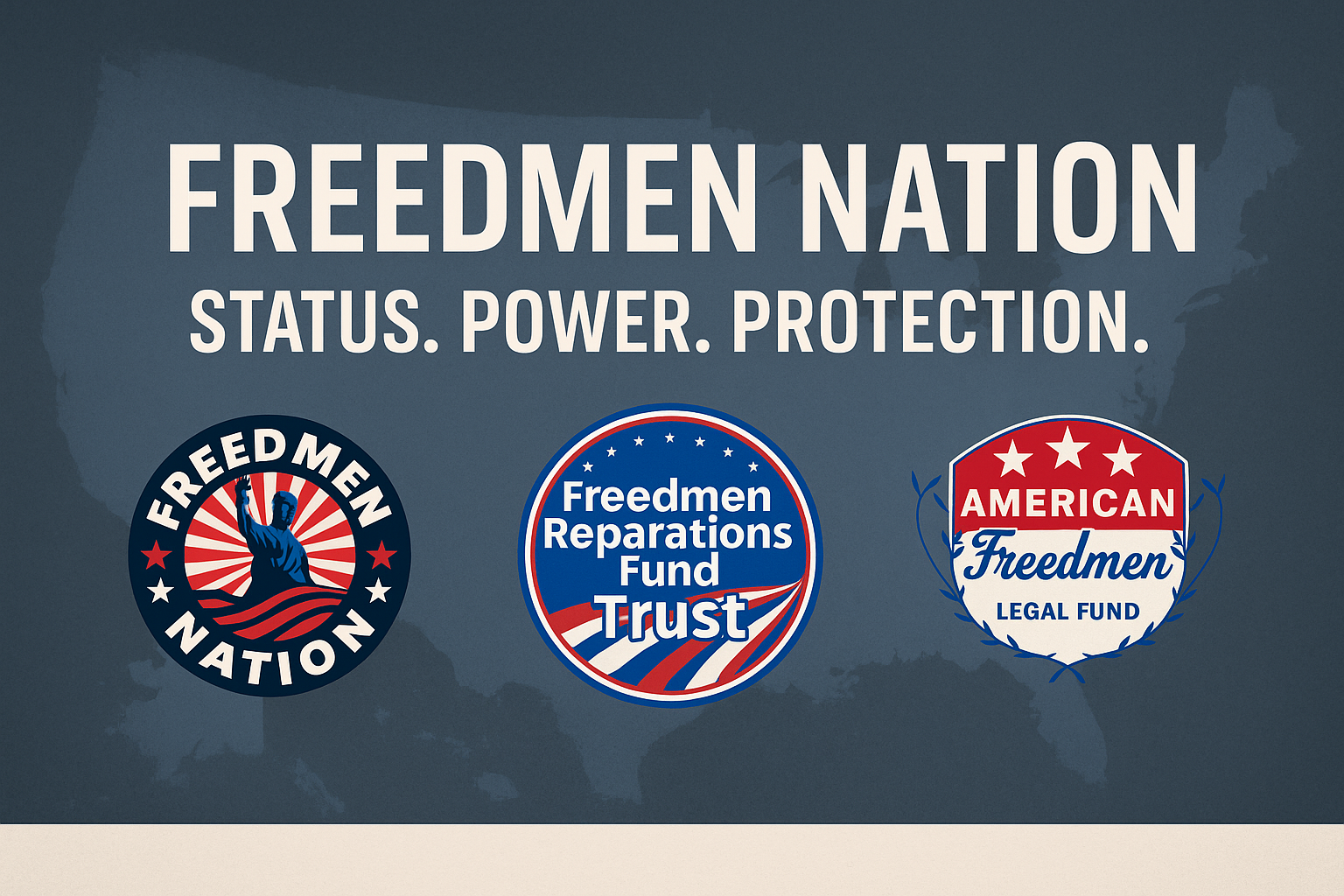Why Licensing Matters: Protecting Freedmen Heritage and Funding Reparative Justice
- Freedmen Nation
- May 25, 2025
- 2 min read
Updated: Jun 2, 2025

The Freedmen Reparations Fund Trust has officially launched its licensing enforcement initiative to safeguard the protected cultural heritage of Verified Freedmen—starting with the name, history, and meaning of Juneteenth. As the sole legal entity entrusted with the stewardship of Freedmen identity, the Trust is now issuing licensing demand packets to organizations that use Juneteenth without proper authorization or that misclassify its origin as Pan-African or broadly racial.
Juneteenth is not a global identity.
It is a specific historical event tied to the 1865 emancipation of Freedmen in Galveston, Texas—individuals who were formerly enslaved and whose status was defined under U.S. federal records. The Trust affirms that Juneteenth belongs solely to Verified Freedmen, and not to generic or global racial categories. Licensing protects this historical integrity and prevents misappropriation by entities who distort or dilute its legal and cultural significance.
Why the Trust Is Enforcing Licensing
The Trust was created to ensure reparative justice through governance, not just rhetoric. Licensing is a legal tool that allows the Trust to:
Protect Freedmen identity from misrepresentation
Preserve the cultural and legal ownership of Juneteenth
Ensure that Verified Freedmen benefit economically and politically from their own heritage
Just as other cultural groups have legal protections over their sacred traditions and terminology, Verified Freedmen now have a Trust that enforces those same rights.
Where Licensing Fees Go
Funds collected through licensing are not for profit—they are directed into a reparative economic structure for Freedmen. Licensing fees go toward:
Direct reparations disbursements to Verified Freedmen
Legal advocacy through the American Freedmen Legal Fund
Genealogical verification services for families completing their Freedmen status
Educational programs to preserve Freedmen history and pass it to future generations
Land acquisition and economic development under Freedmen Nation
Each licensing payment supports the self-governance of Freedmen and ensures that the communities most impacted by slavery continue to lead the narrative of their own freedom.
Conclusion: A Legal Right, Not a Request
This is not about gatekeeping. It is about governance. The Freedmen Reparations Fund Trust is not asking for permission—it is exercising its legal standing. By licensing Juneteenth and other protected cultural assets, the Trust ensures that Freedmen are not erased, misrepresented, or economically exploited.
Organizations using Freedmen property without authorization will be held accountable through formal invoices and governance notices. Those who wish to work in good faith are invited to seek proper licensing and collaborate within the standards established by the Trust.
To begin the licensing process or to check your organization’s compliance status, visit:





Comments